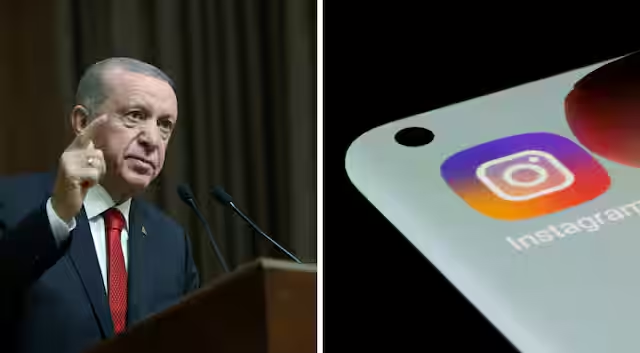The popular social media platform Instagram blocked in Turkey for the third consecutive day, sparking concerns over digital censorship and freedom of expression in the country. This article explores the reasons behind the ban, its impact on Turkish users, and the broader implications for social media regulation in Turkey. Turkey’s communications authority, BTK, implemented the Instagram ban on August 2, 2024, citing violations of national laws and sensitivities. The move has affected millions of users and drawn criticism from opposition parties and civil society groups. As tensions between the Turkish government and social media platforms continue to escalate, this incident highlights the delicate balance between national security concerns and digital rights.
The Ban and Its Official Justification
On August 2, the BTK communications authority announced the freezing of Instagram access across Turkey without providing an immediate explanation. However, government officials soon came forward with justifications for the ban. Transport and Infrastructure Minister Abdulkadir Uraloglu stated that the platform had failed to address “criminal content” despite warnings from Turkish authorities.
Uraloglu emphasized the importance of respecting Turkey’s values and sensitivities, saying, “Our country has values and sensitivities. Despite our warnings, they did not take care of criminal content.” He further added that the ban would be lifted once Instagram complies with Turkish laws.
The government’s stance was reinforced by Fahrettin Altun, the President’s communications director, who accused Instagram of censorship. Altun claimed that the platform was “preventing people from publishing messages of condolence for the martyr (Hamas leader Ismail) Haniyeh.” This accusation links the ban to broader geopolitical issues and Turkey’s stance on the Israeli-Palestinian conflict.
Impact on Turkish Users and Public Reaction
The Instagram ban has had a significant impact on Turkish society, given the platform’s widespread use in the country. According to Turkish media reports, approximately 50 million out of Turkey’s 85 million population have Instagram accounts. This high penetration rate underscores the platform’s importance for personal communication, business, and information sharing among Turkish citizens.
The sudden loss of access to Instagram has sparked public debate and criticism. Opposition parties, including social-democratic and nationalist groups, have taken legal action by petitioning the courts to lift the freeze. The Ankara legal profession has also joined these efforts, highlighting concerns about freedom of expression and access to information.
Many users have expressed frustration over the ban, with some turning to virtual private networks (VPNs) to circumvent the restrictions. However, the use of VPNs is not a viable long-term solution for most users and businesses that rely on Instagram for their daily activities.
Broader Implications for Social Media Regulation in Turkey
The Instagram ban is not an isolated incident but part of a broader trend of increasing government control over social media platforms in Turkey. In recent years, the country has implemented stricter regulations on social media companies, requiring them to establish local offices and comply with content removal requests.
This latest incident raises questions about the future of social media in Turkey and the potential for further restrictions on other platforms. It also highlights the ongoing tension between governments seeking to regulate online content and tech companies’ efforts to maintain user privacy and freedom of expression.
The ban has drawn international attention, with human rights organizations and digital rights advocates expressing concern over what they see as a violation of Turkish citizens’ right to access information freely. Some fear that this incident could set a precedent for more frequent and longer-lasting social media restrictions in the future.
As the Instagram block in Turkey enters its third day, the situation remains fluid. The Turkish government maintains that the ban will be lifted once Instagram complies with local laws and addresses the alleged “criminal content.” However, the lack of transparency regarding the specific nature of these violations has led to skepticism and calls for a swift resolution.
The Instagram blocked in Turkey serves as a stark reminder of the complex relationship between governments and social media platforms in the digital age. It underscores the need for clear, fair, and transparent regulations that balance national security concerns with citizens’ rights to free expression and access to information. As this situation continues to unfold, it will likely have lasting implications for the future of social media usage and regulation not only in Turkey but potentially in other countries grappling with similar issues.
Related News
















